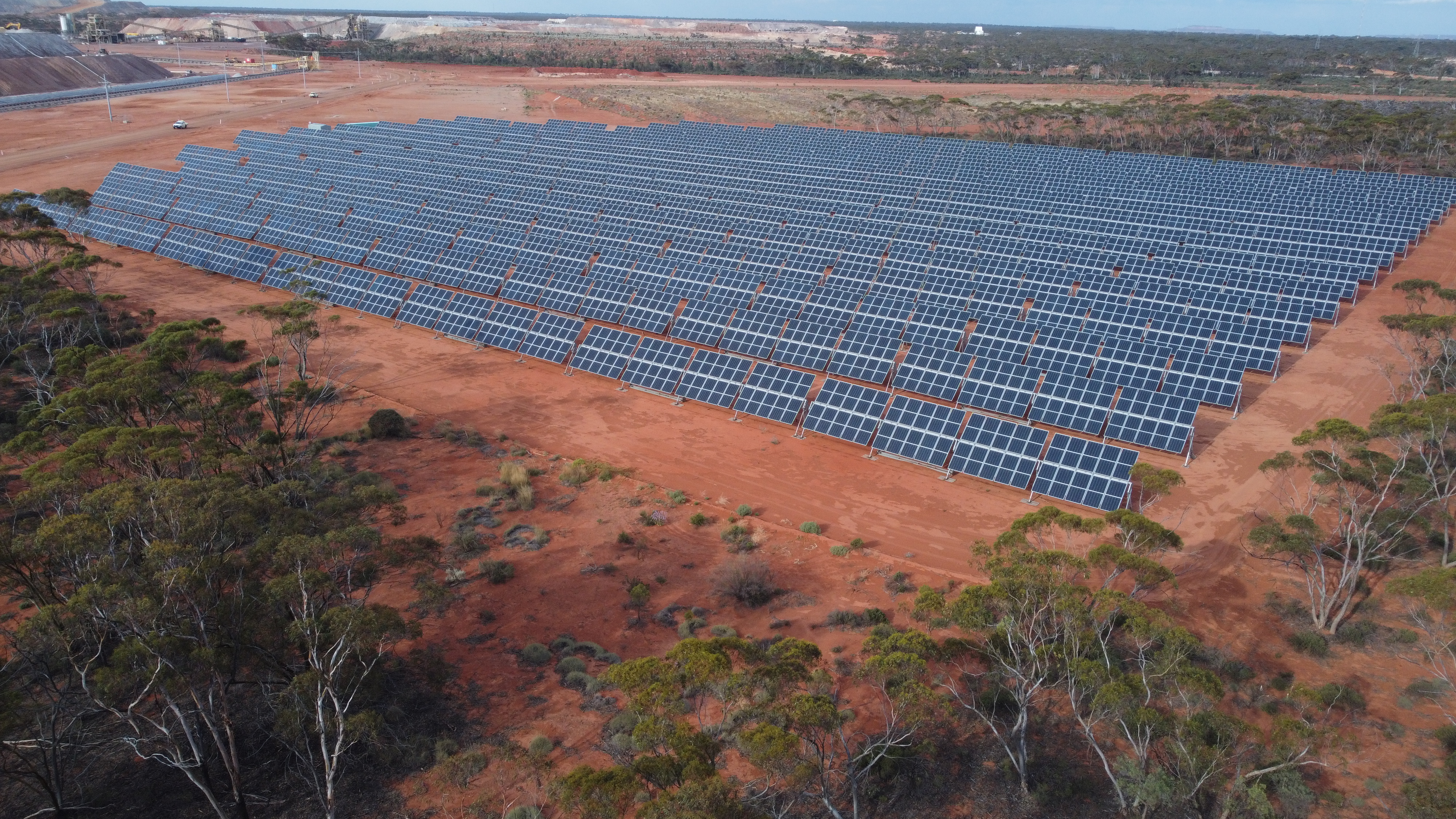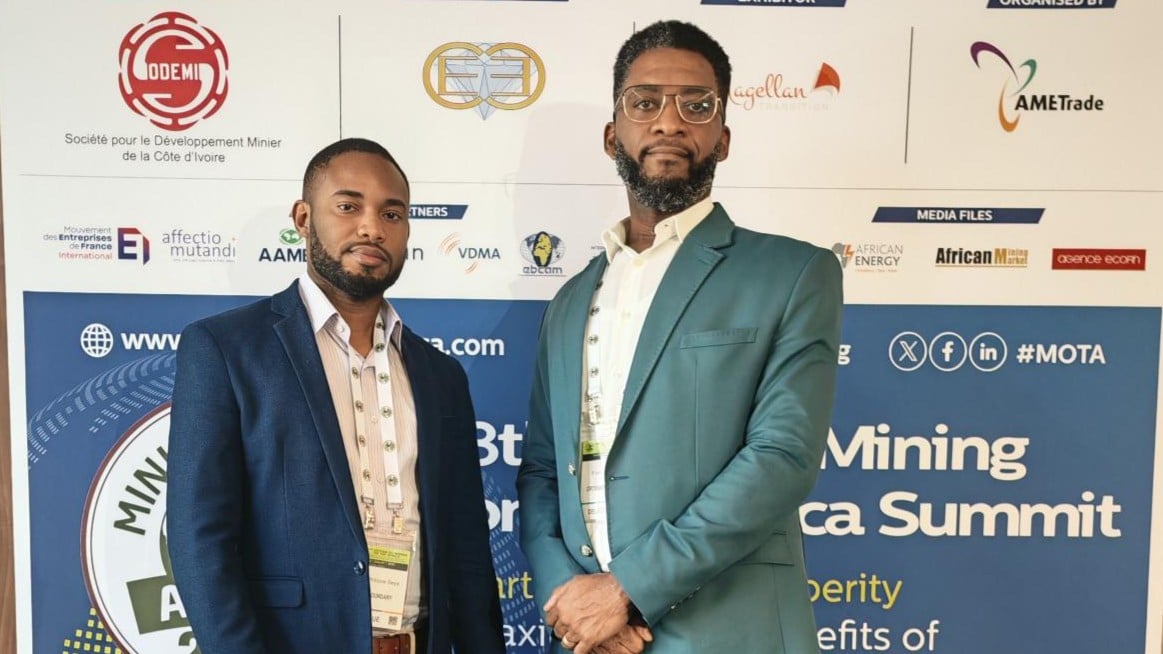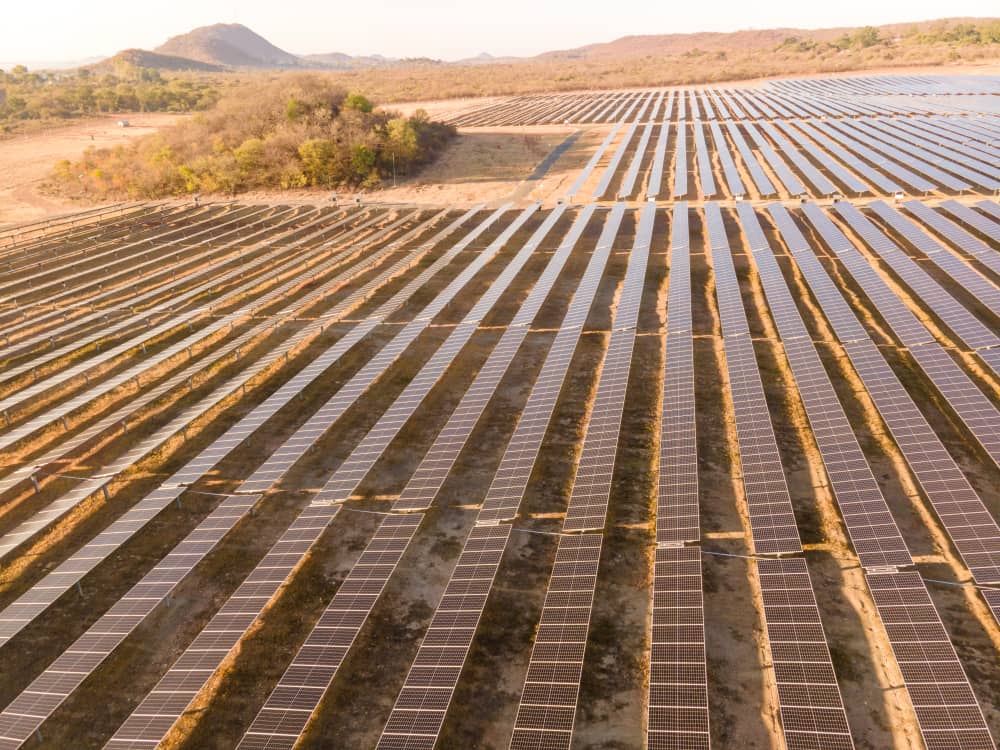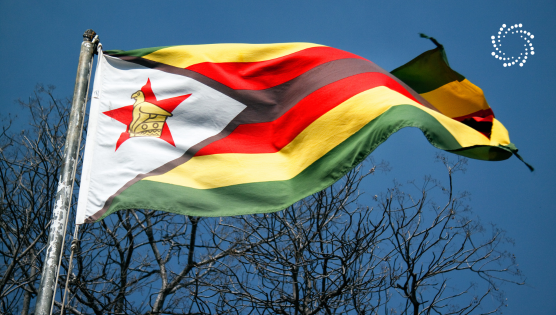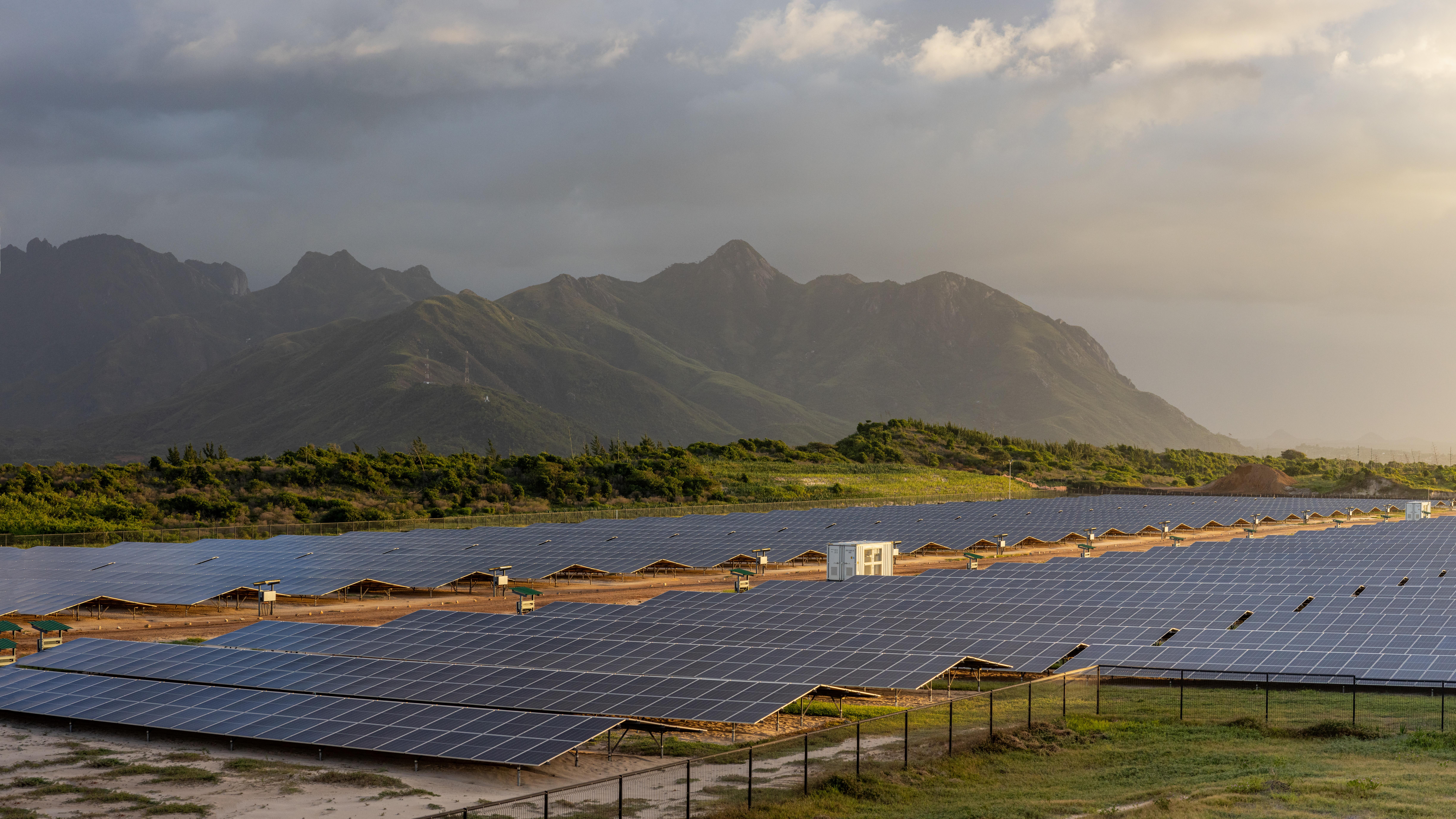
Rio Tinto QMM Mine
Madagascar
The company’s operations involve open-pit mining, excavation, and processing of the mineral sands to produce the final products. QIT Madagascar Minerals employs advanced technologies and techniques to ensure the efficiency and safety of its operations.
Rio Tinto came to CrossBoundary Energy to provide a low-carbon energy solution for their mining operations at QMM. The solution was to use the abundant wind and solar resource, in combination with battery storage, to supply consistent and low-carbon energy for their operations. In 2021, the foundation stone was laid for the first phase of the renewable energy project – a 8 MWp solar park in conjunction with a 8.25 MWh battery facility. This first phase of the project was commissioned in August 2023, and inaugurated by the President of Madagascar, His Excellency Mr Andry Rajoelina, in April 2024.
The second phase of the project involves an expansion of the solar park by a further 6 MWp and an additional 8.25 MWh battery facility, providing a total solar and battery capacity of 14 MWp and 16 MWh respectively. In addition, the second phase involves the building of Madagascar’s first ever wind farm, a 16 MW solution comprising of 19 wind turbines that make use of the abundant wind resource in the area. Once this phase is completed and operational, renewable energy will provide around 56% of the mining operation’s total energy demand.
CrossBoundary’s renewable energy solution supports Rio Tinto QMM’s commitments to build a “sustainable mine”. The operation has implemented a range of initiatives to minimize its carbon footprint, reduce waste generation, and conserve water resources.

Sustainable farming at Ehoala Solar Park
At the Ehoala Solar Park, a community food garden run by local company Alona Agriculture is demonstrating how clean energy and sustainable agriculture can coexist and nourish communities.
Through the Ehoala Solar Park Food Garden, our partners are cultivating over 4,800 m² of vegetables while nurturing a nursery of 250,000 fruit and tropical trees. What began as a pilot now feeds local families, supplies nearby restaurants with fresh, high-quality produce, and empowers community members, many of whom are learning to farm for the first time.
Beyond food, the project trains local residents in agricultural skills and sources compost and organic materials from the community. The solar panels provide shade, collect water, and improve microclimates for more favorable growing conditions.
This initiative thrives thanks to the dedicated partners on the project. Alongside Alona Agriculture, CEFFEL, a local farming association from Antsirabe, has provided invaluable agricultural training and ongoing support. FOFIFA, a tropical plant research institute, is helping to implement specialty crops, including 100,000 coffee and 100,000 cacao trees. Ferris Engineering continues to champion this initiative with essential technical equipment and financial backing.













